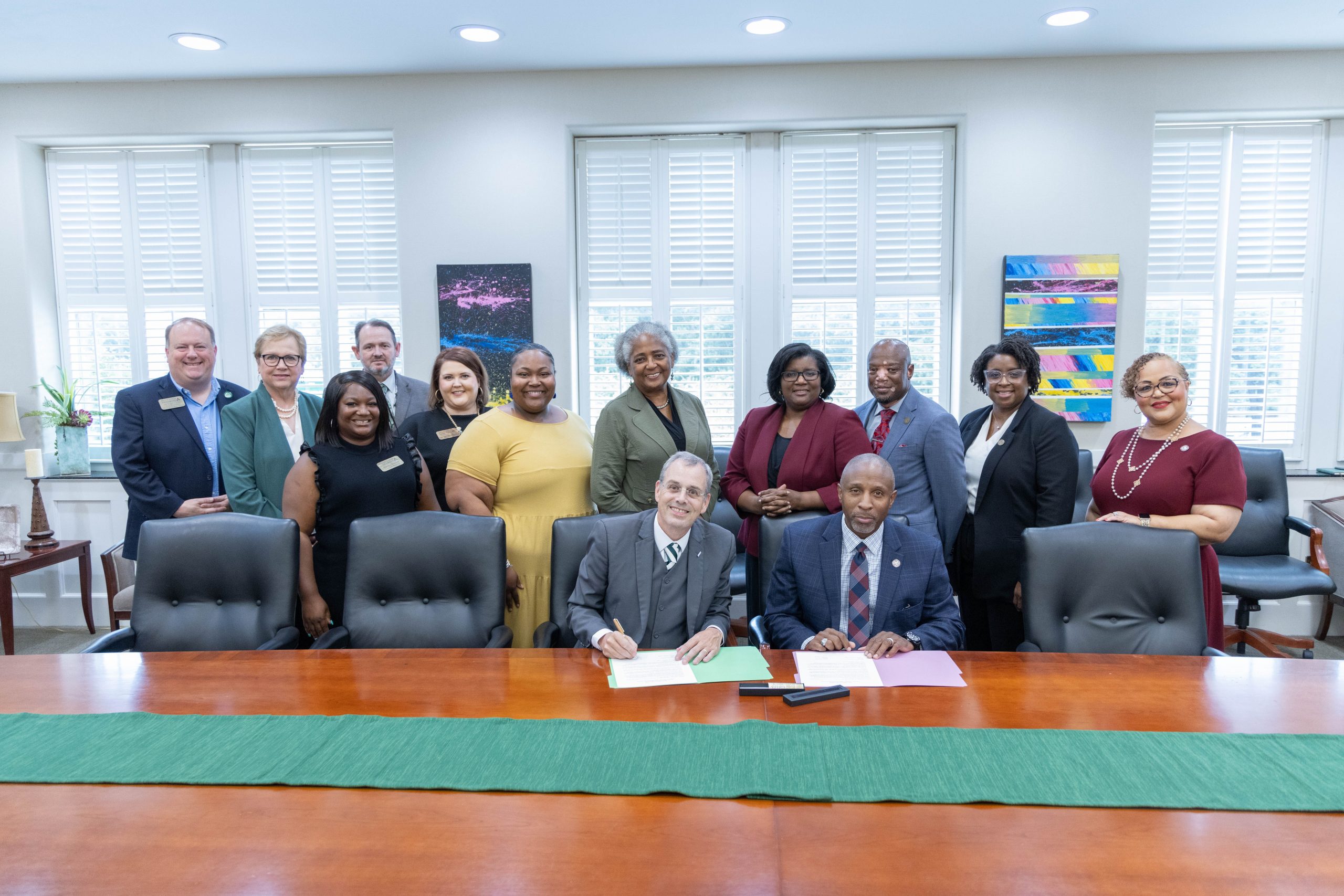 Representatives of Delta State and Coahoma Community College joined Dr. Valmadge Towner (seated, right), President of Coahoma Community College and Dr. Daniel J. Ennis, President of Delta State University as they sign a Memorandum of Understanding between the two institutions that will open new opportunities for college students in the Mississippi Delta.
Representatives of Delta State and Coahoma Community College joined Dr. Valmadge Towner (seated, right), President of Coahoma Community College and Dr. Daniel J. Ennis, President of Delta State University as they sign a Memorandum of Understanding between the two institutions that will open new opportunities for college students in the Mississippi Delta.CLEVELAND, Miss. — Delta State University and Coahoma Community College are pleased to announce a new Memorandum of Understanding to expand educational opportunities and improve graduation rates. This partnership strengthens academic collaboration and support for students in the Mississippi Delta.
Dr. Daniel J. Ennis, President of Delta State University, expressed his enthusiasm for this new partnership, saying, “This Memorandum of Understanding marks an important partnership between Delta State University and Coahoma Community College. Through this collaboration, we are enhancing our ability to provide students with the necessary resources and support to thrive academically and in their careers.”
As part of this MOU, Delta State University will expand the new Phi Theta Kappa Community College Residential Award announced last month when similar MOUs were signed between DSU and Northwest Mississippi Community College, and DSU and Mississippi Delta Community College. This scholarship will be available to CCC students who are active Phi Theta Kappa members in good standing and have completed their Associate of Arts or Associate of Applied Science degrees. The scholarship is designed to recognize and support high-achieving students from CCC as they transition to Delta State.
In turn, CCC will work closely with Delta State to promote this scholarship, ensuring that CCC students are well-informed about the various academic programs and opportunities available at Delta State University.
Dr. Valmadge Towner, President of Coahoma Community College, said, “This partnership represents a significant step forward in providing our students with the tools and opportunities they need to succeed in today’s competitive world. By working together with Delta State University, we can offer a seamless transition for our graduates, ensuring they have the academic support and resources necessary to continue their education and achieve their goals. This MOU is more than just an agreement; it is a shared commitment to the success of students across the Mississippi Delta.”
By facilitating reverse transfer, both institutions aim to enhance degree completion at the associate and bachelor’s levels. Moreover, this partnership will explore additional opportunities for collaboration, including co-enrollment programs, shared curricular resources, and enhanced professional development for faculty and staff.

